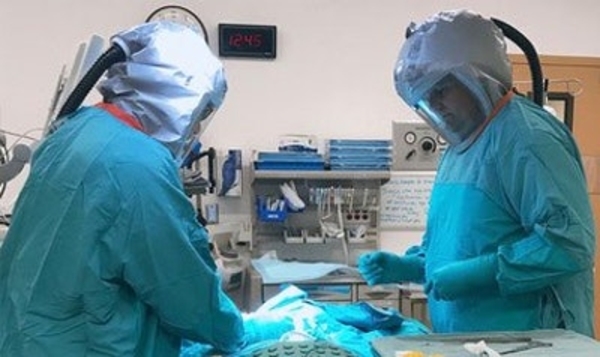Price:
9020 EUR
Contact
The University of British Columbia
Description
This fully online course is intended to prepare surgical care providers to deliver surgical care during a pandemic, while protecting their patients, their colleagues, themselves and their families from potential infection. The course will review aspects of a pandemic that are relevant to surgical providers, different timelines of a pandemic, how provision of surgical care needs to change during these timeframes, and how to protect themselves and others from infection during the pandemic.
Surgical services are an essential part of healthcare systems. In times of pandemics, healthcare systems can be disrupted and overwhelmed, while all resources are redirected to treatment of those infected by the pandemic organism. Consequently, there needs to be a plan in place to protect essential surgical services, so that patients who require urgent and life-saving surgical care do not suffer collaterally from the impact of the pandemic.
Additionally, operating rooms are high-risk environments for the transmission of infectious diseases to healthcare workers. With the progression of the pandemic, when resources become scarce, anxiety and stress levels are high; as prevalence of the disease increases exponentially, the stress on the surgical system will rise similarly and the safe maintenance of essential surgical services will be threatened.
This course aims to inform surgical teams of the risk during pandemics, prepare them to respond appropriately, give them tools to ensure their safety, build pathways to maintain specific surgical services and anticipate and mitigate long term impacts. When appropriate, real life case studies, and clinical examples will be used. We will use examples and case studies drawn from the ongoing SARS-CoV-2 (COVID-19) pandemic, but also from past events like the SARS-CoV (SARS) outbreak in 2003 and the Ebola outbreak in 2014. Where possible, relevant discussion of implications to low versus high resource settings will be integrated into the course material. However, the materials reviewed in many respects are not unique to a particular resource setting.
By the end of the course, students will demonstrate capabilities in provision of surgical care services during a pandemic.
This online course is accredited for up to 20.0 Mainpro+/MOC Section 3 credits (credit conversion available for: AMA PRA Category 1 Credits™ and American Academy of Family Physicians Prescribed Credits).
Specific details
Category of Education
Medicine and Healthcare
